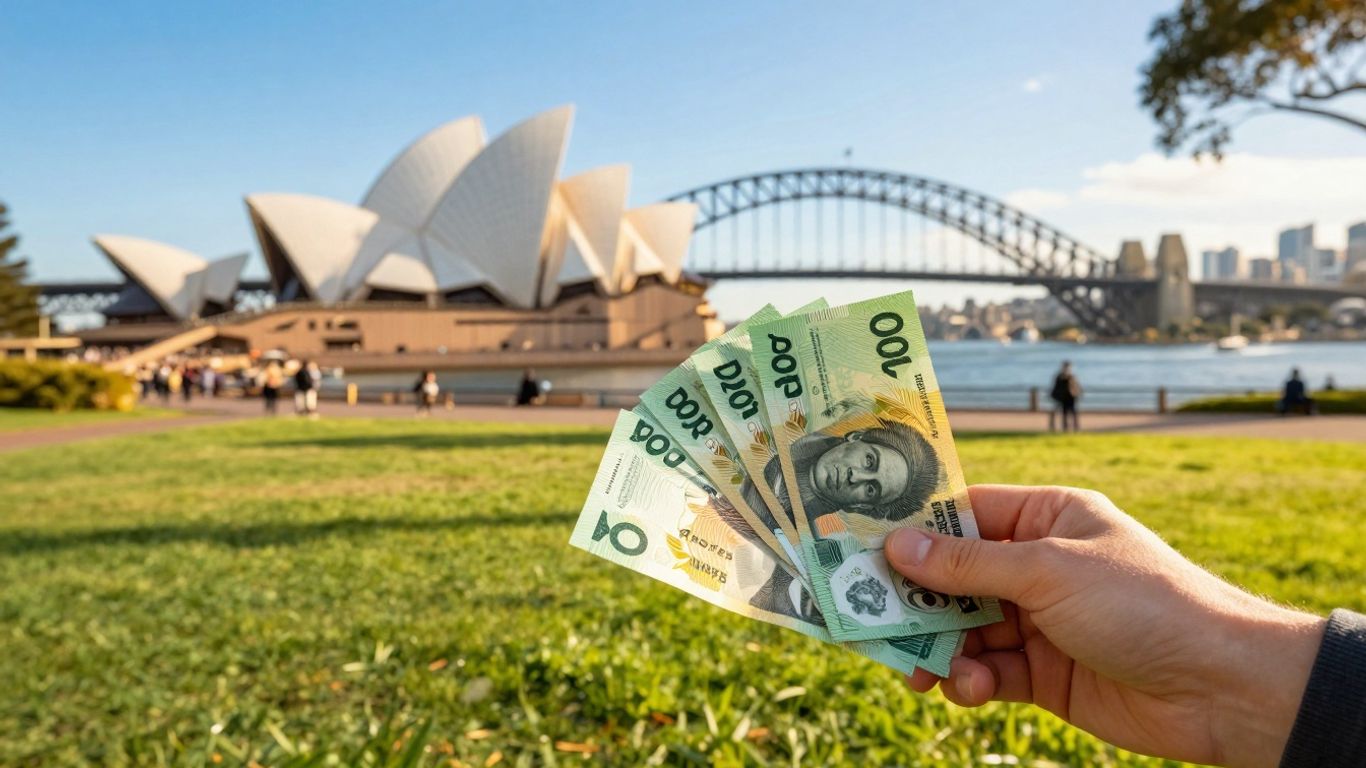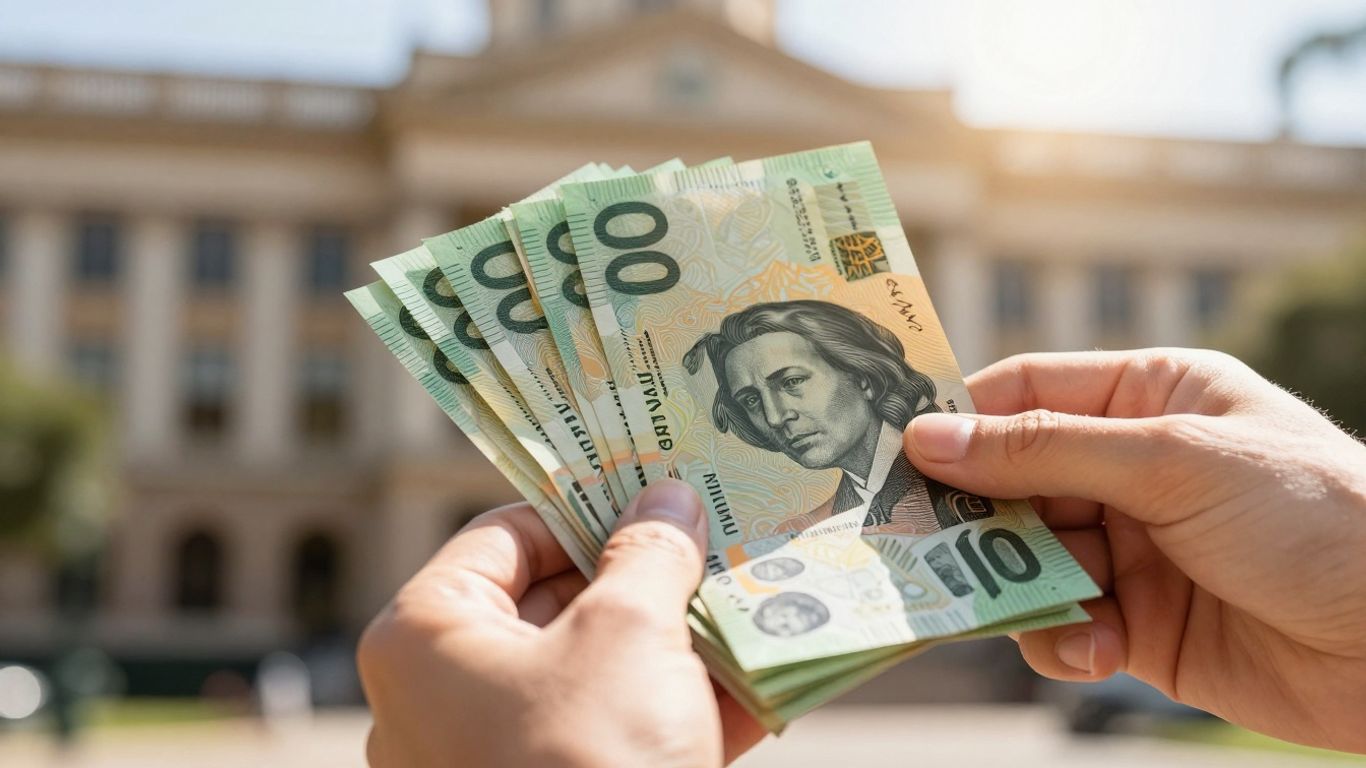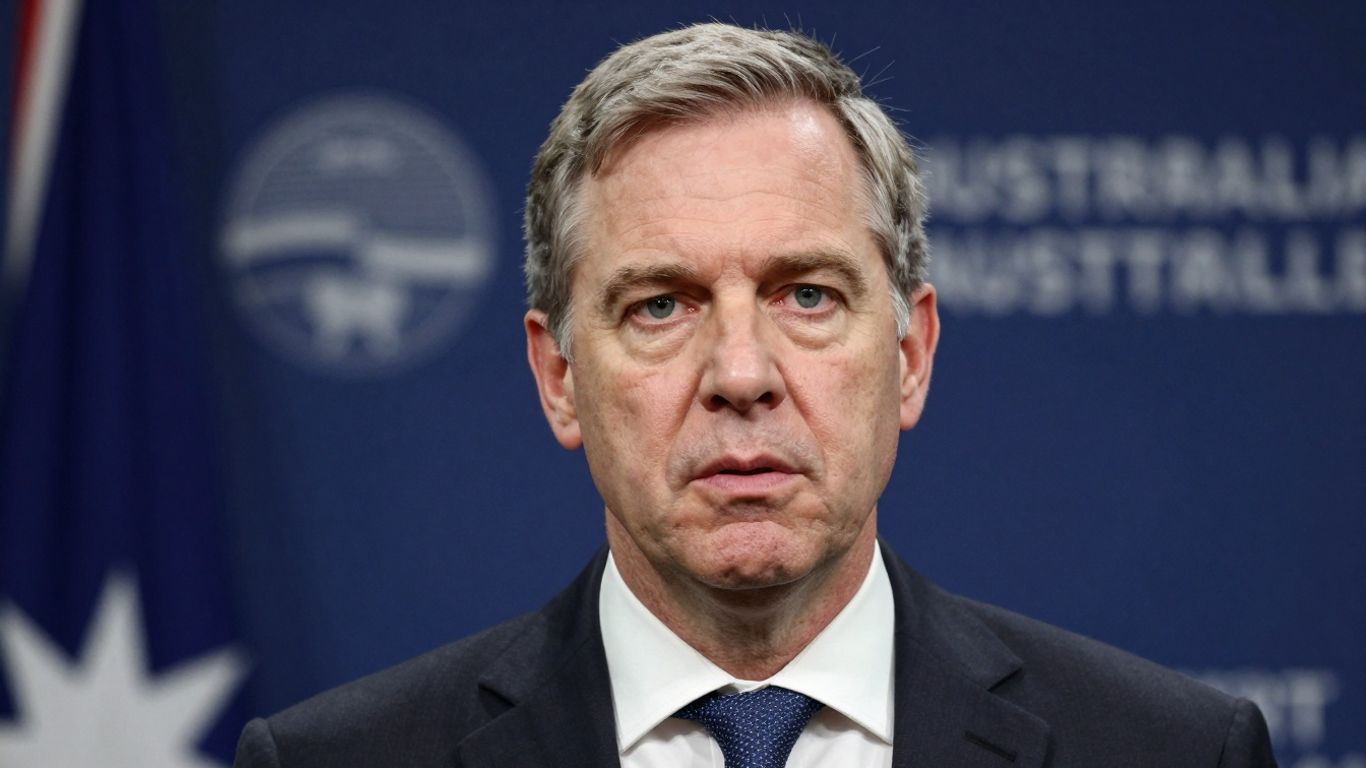G’day, mates! Ever feel like your hard-earned cash just disappears faster than a sausage at a BBQ? You’re not alone. With everything getting pricier, it’s easy to feel the pinch. But don’t you worry, I’ve got some fair dinkum mint budgeting tips Australia has to offer that’ll help you keep more dosh in your pocket. We’re talking about smart ways to cut down on costs without feeling like you’re missing out on the good stuff. Let’s get stuck into it and make your money work harder for you!
Key Takeaways
- Small changes in how you spend can really add up over time.
- Being smart with your money doesn’t mean you can’t have a good time.
- There are heaps of Aussie-specific ways to save a few bucks.
- You can live well and still be good with your finances.
- Learning a few new skills can save you heaps in the long run.
Strewth! Get Your Finances Sorted with a Top-Notch Budgeting Folder
Why a Budgeting Folder is Your Best Mate
Right, so you wanna get your finances sorted, eh? Forget fancy apps for a sec. Sometimes, the old ways are the best. A budgeting folder? Yeah, it might sound like your nan’s thing, but trust me, it’s a fair dinkum way to get on top of your dosh. It’s all about having a clear, physical record of where your money’s going.
Think of it like this:
- No more endless scrolling through bank statements.
- Everything’s in one spot, easy to find.
- It’s a visual reminder to stick to your budget.
I used to be all over the place with my spending. Then I started using a budgeting folder, and it was like a weight lifted off my shoulders. Suddenly, I could see where every dollar was going. It’s not rocket science, but it works a treat.
Setting Up Your Aussie Budgeting Folder
Alright, let’s get this folder sorted. You’ll need a few things:
- A sturdy folder (an A4 binder will do the trick).
- Dividers – label them with your main spending categories (rent, food, transport, bills, fun money).
- Plastic sleeves – for receipts and important documents.
- Budgeting worksheets – you can print these off the internet or make your own. Budgeting worksheets are a great way to track your spending.
Here’s a sample table for your worksheets:
| Category | Budgeted Amount | Actual Spending | Difference | Notes |
|---|---|---|---|---|
| Rent | $1200 | $1200 | $0 | |
| Groceries | $400 | $450 | -$50 | Need to cut back on the fancy cheese! |
| Transport | $200 | $180 | $20 | |
| Entertainment | $100 | $150 | -$50 | Fewer trips to the pub this month! |
Keeping Your Folder Fair Dinkum
Now, just having a folder isn’t enough. You gotta use it! Here’s how to keep it fair dinkum:
- Update it weekly – don’t let receipts pile up.
- Be honest with yourself – no point fudging the numbers.
- Review it monthly – see where you can save some coin.
By keeping your folder up-to-date, you’ll be able to spot any sneaky spending habits and make sure you’re staying on track with your financial goals. It’s a simple but effective way to manage your money.
Stretching Your Dollar: The Best Budgeting and Planning Software for Aussies

Why Budgeting Apps Are a Game Changer
Right, so you’re probably thinking, "Budgeting apps? Sounds about as fun as a trip to the dentist." But trust me, these little gadgets can be absolute rippers when it comes to getting your finances sorted. I used to just wing it with my spending, and let’s just say my bank account wasn’t exactly thrilled. Then I started using a budgeting app, and it was like someone turned on the lights.
Budgeting apps help you keep track of where your hard-earned dosh is actually going. It’s like having a financial guru right there in your pocket, except way cheaper (most have free versions, too!).
Here’s why I reckon they’re grouse:
- They show you exactly where your money vanishes to each month. You might be shocked at how much you’re forking out on coffees or those sneaky online shopping sprees.
- You can set budgets for different categories, like groceries, transport, and entertainment. This stops you from overspending without even realising it. It’s about making your money work for you, not the other way around.
- Many apps link straight to your bank accounts, so you don’t have to manually enter every transaction. Talk about convenient!
I remember one month, I thought I was doing pretty well with my spending. Then I checked my budgeting app, and it turned out I’d spent a ridiculous amount on takeaway food. It was a real eye-opener, and I started cooking at home more. Saved a heap of cash!
Top Budgeting Apps for Aussies
There are heaps of budgeting apps out there, but some are better suited to Aussies than others. Look for apps that:
- Connect seamlessly with Australian banks. Seamless connection is key for automatic tracking.
- Handle AUD without any dramas.
- Understand Aussie spending habits – from your flat white to your Bunnings snag.
Making Your Money Work for You
Okay, so you’ve got your budgeting app sorted. Now what? Well, it’s all about using that info to make smarter choices. Have a good look at where your money’s going, and see where you can cut back. Maybe you can ditch that daily latte, or find a cheaper phone plan. Every little bit helps!
And don’t forget to set some financial goals. Whether it’s saving for a house deposit, a holiday, or just a rainy day, having something to aim for can really help you stay motivated. Plus, it feels pretty good when you finally reach those goals. So get out there and start making your money work for you, not the other way around!
Personal Budgeting 101: Your Aussie Guide to Smarter Spending
Understanding Where Your Dosh Goes
Right, so first things first, you gotta know where your money’s actually disappearing to each month. It’s like trying to find a snag at a barbie – you gotta look around! Most of us are clueless about where our hard-earned cash ends up. I used to think I was only spending a little on coffees, but then I actually tracked it… Crikey! It was way more than I thought.
Here’s a few ways to get a handle on it:
- Bank Statements: Go through your bank statements for the last few months. Highlight everything – rent, bills, spending goals, that sneaky online shopping.
- Budgeting Apps: These are grouse for automatically tracking your spending. They link to your bank account and categorise everything. More on that later!
- Old School Notebook: If you’re not a tech whiz, grab a notebook and write down every single thing you spend for a month. Even that 50c lolly.
I remember when I first started tracking my spending, I was shocked to see how much I was wasting on stuff I didn’t even need. It was a real wake-up call. Now I’m way more mindful of where my money goes.
Setting Realistic Spending Goals
Okay, so you know where your money’s going. Now it’s time to set some goals. But not those pie-in-the-sky, ‘I’m gonna be a millionaire next year’ goals. We’re talking realistic, achievable goals.
Here’s a few ideas:
- Short-Term Goals: These are things you want to achieve in the next few months. Like saving for a weekend away, a new telly, or paying off a credit card.
- Medium-Term Goals: These are things you want to achieve in the next few years. Like saving for a deposit on a house, a new car, or a big holiday.
- Long-Term Goals: These are things you want to achieve in the next 5-10 years (or more!). Like retirement, your kids’ education, or paying off your mortgage.
Make sure your goals are SMART:
- Specific: What exactly do you want to achieve?
- Measurable: How will you know when you’ve achieved it?
- Achievable: Is it actually possible to achieve your goal?
- Relevant: Is it important to you?
- Time-Bound: When do you want to achieve it by?
Tracking Your Spending Like a Pro
Right, so you’ve got your budget, you’ve got your goals. Now it’s time to track your spending like a true blue Aussie pro. This is where the rubber hits the road, mate.
Here’s how to do it:
- Use a Budgeting App: As mentioned before, these are grouse for automatically tracking your spending. They link to your bank account and categorise everything. Plus, they can send you alerts if you’re going over budget. Money Savvy is key for automatic tracking.
- Spreadsheet: If you’re a bit of a spreadsheet whiz, you can create your own budget tracker. This gives you more control over how you categorise your spending.
- Good Old Notebook: If you’re not a tech head, just keep a notebook and write down everything you spend. It might take a bit longer, but it’s still effective.
| Category | Budgeted Amount | Actual Amount | Difference |
|---|---|---|---|
| Rent | $1,500 | $1,500 | $0 |
| Groceries | $400 | $450 | -$50 |
| Transport | $200 | $180 | $20 |
| Entertainment | $150 | $200 | -$50 |
| Total Expenses | $2,250 | $2,330 | -$80 |
The key is to be consistent. Track your spending every day, or at least every week. This will help you stay on track and make sure you’re not overspending. And don’t be afraid to adjust your budget if you need to. Life happens, and sometimes you need to spend more in one area than you planned. Just make sure you cut back somewhere else to compensate.
Unearthing the Best Money Saving Tips Australia Has to Offer

Small Changes, Big Savings
Right, so you wanna save some dosh, eh? It’s not about winning the lottery; it’s about making small changes that add up over time. Think of it like this: every little bit you save is another shrimp on the barbie, or maybe a fancy coffee you can treat yourself to later. The key is consistency.
Here are a few ripper ideas to get you started:
- Meal Planning: Instead of grabbing takeaway every night, plan your meals for the week. Write a shopping list and stick to it. You’ll be surprised how much you save by avoiding impulse buys.
- DIY Coffee: That daily cafe latte? It’s costing you a fortune! Invest in a decent coffee machine or even a French press and make your own. It’s cheaper and you can control the strength.
- Walk or Cycle: If you live close enough to work or the shops, ditch the car and walk or cycle. It’s good for your health and your wallet. Plus, you’ll avoid those crazy petrol prices.
Aussie-Specific Ways to Save
Alright, let’s get down to the nitty-gritty. Australia’s got its own unique ways to save a buck or two. These are the tips that’ll really make a difference to your budgeting folder.
- Shop Around for Insurance: Don’t just stick with the first insurance quote you get. Compare prices from different providers. You could save hundreds on car, home, or health insurance.
- Take Advantage of Free Activities: Australia’s got some amazing free stuff to do. Hit the beach, go for a hike in a national park, or check out a free museum. You don’t need to spend a fortune to have a good time.
- Embrace the Op Shop: Second-hand stores are goldmines for clothes, furniture, and other household items. You can find some real bargains if you’re willing to have a bit of a rummage.
I reckon one of the best things you can do is shop around. Don’t just stick to one supermarket. Check out ALDI for basics, and then maybe go to Coles or Woollies for the rest. It might take a bit more time, but the savings can be worth it. Plus, keep an eye out for specials and discounts. Every little bit helps!
Living Well on a Budget
Saving money doesn’t mean living like a hermit. You can still enjoy life while being thrifty. It’s all about making smart choices and finding ways to get more bang for your buck. Think of it as personal budgeting with a bit of Aussie flair.
Here’s how to live large on a small budget:
- Enter Competitions: There are heaps of competitions and giveaways in Australia. You might not win every time, but you’ve gotta be in it to win it!
- Take Advantage of Loyalty Programmes: Sign up for loyalty programmes at your favourite stores and restaurants. You can earn points or discounts on future purchases.
- Cook at Home: Eating out is expensive. Cooking at home is not only cheaper but also healthier. Get creative in the kitchen and try new recipes. You can even grow your own home herb garden to save even more!
Cracking the Code: How to Read Your Bank Statements Like a Legend
Bank statements. Yeah, they might seem about as thrilling as watching paint dry, but trust me, they’re absolute gold when it comes to getting your finances sorted. I used to just chuck ’em in a drawer without a second glance. Big mistake!
Spotting Sneaky Fees
Banks, they’re always trying to get one over on ya, aren’t they? They love to slap fees on everything they can get away with. Overdrawn? Fee. Didn’t use your card enough? Believe it or not, fee! Scrutinise your statements to make sure you’re not getting stung by these unnecessary charges. Here’s a quick checklist:
- Account keeping fees: Are you paying a monthly fee just to have the account? Shop around for a better deal!
- ATM fees: Using another bank’s ATM can cost you. Stick to your own bank’s network.
- Overdraft fees: Avoid these like the plague! Set up alerts to warn you when your balance is low.
Identifying Wasteful Spending
This is where things get real. Your bank statement is a cold, hard record of where your dosh actually goes, not where you think it goes. That daily coffee run? Those late-night online shopping sprees? They all add up, mate! Seeing it all in black and white can be a real eye-opener. I realised I was spending a fortune on takeaway. Now, I cook more at home. Here’s how to spot the culprits:
- Look for recurring payments: Are you still paying for that gym membership you never use?
- Categorise your spending: Group similar transactions together to see where your money is going.
- Be honest with yourself: Are those impulse buys really worth it?
Catching Errors and Forgotten Subscriptions
Banks are run by humans, and humans make mistakes. Make sure all the transactions are actually yours. You’d be surprised how often errors occur. I once had a random charge from a company I’d never heard of – got it sorted straight away. Plus, those sneaky subscriptions can really bleed you dry. Here’s what to look for:
- Unrecognised transactions: Report them to your bank immediately.
- Double charges: Sometimes, transactions get processed twice.
- Forgotten subscriptions: Cancel those streaming services you no longer use.
Seriously, take an hour, grab a cuppa, and go through your last few bank statements. You might be shocked at what you discover. It’s a simple way to find money you didn’t even know you were losing. You might even find some forgotten subscriptions you can cancel. It’s like finding free money! It’s a great way to start smart investing too.
Grow Your Own Green: Saving Dosh with a Home Herb Garden
Why Growing Herbs is Mint
Growing your own herbs is a bonza way to save some serious coin. Think about it – those little packets of herbs at the supermarket cost a fortune, and half the time they go off before you even get to use them. Growing your own means fresh herbs whenever you need them, and it’s way cheaper in the long run. Plus, it’s pretty satisfying watching something you planted actually grow!
- Saves you money on fresh produce from the shops.
- Adds flavour to your cooking without the added cost.
- Reduces food waste because you only harvest what you need.
Gardening is actually pretty therapeutic. Getting your hands dirty and watching something grow is a great way to de-stress after a long day at work. It’s a win-win, really.
Easy Herbs to Grow in Australia
So, what herbs are easy to grow here in Oz? Plenty! Here’s a few to get you started:
- Basil: Great in pasta, salads, and heaps of other dishes.
- Mint: Perfect for teas, cocktails, and desserts. It can be invasive, so keep it in a pot.
- Parsley: A versatile herb that goes with just about anything.
- Chives: Adds a mild onion flavour to salads, soups, and dips.
- Rosemary: Hardy and drought-tolerant, great for roasting meats and veggies.
Just chuck ’em in a pot with some decent soil, give them some sun and water, and you’re good to go. You’ll be surprised how much you use them once you’ve got them on hand.
Propagating for Extra Savings
Want to save even more? Propagating herbs is a ripper way to get more plants for free. It’s easier than you think! For example, you can take cuttings from your mint or rosemary plants and stick them in water until they grow roots. Then, plant them in pots and you’ve got new plants! You can also divide chives and parsley plants to create more. It’s like magic, but with plants. This is a great way to save money and have a constant supply of home herb garden without spending a fortune.
Old School Wisdom: Why Budgeting Books Still Reign Supreme
The Benefits of Physical Budgeting Books
Alright, so in this day and age of apps and online resources, you might reckon books are a bit old-school. But trust me, there’s something about having a physical book that can really help you get your finances sorted. Plus, no screen time before bed! I reckon budgeting books are a bonza way to get a solid foundation in personal finance. They can explain things in a way that’s easy to understand, and they often include practical exercises to help you put what you’re learning into practise. Budgeting books can provide a structured approach to managing your money.
Here’s why I think they’re worth a look:
- They offer in-depth explanations of financial concepts, like compound interest and debt management.
- Many books include templates and worksheets to help you create a budget and track your spending. You can even find free budgeting worksheets online.
- They can provide motivation and inspiration to stick to your financial goals.
I remember when I first started trying to get my finances in order, I felt completely overwhelmed. I didn’t know where to start. Then I picked up a budgeting book at a secondhand store, and it really helped me break things down into manageable steps. It was like having a financial mentor in my pocket.
Structured Approach to Money Management
Budgeting books offer a structured approach to managing your dosh. Unlike apps that can sometimes feel a bit overwhelming with all their features, books usually present information in a logical, step-by-step manner. This can be especially helpful if you’re just starting out and need a clear roadmap to follow. They often include chapters dedicated to specific areas like saving, debt reduction, and investing, giving you a well-rounded understanding of personal finance. Plus, you can highlight, underline, and make notes in the margins – something you can’t easily do with a digital app. This active engagement can help you retain information and tailor the advice to your own situation.
Practical Exercises for Financial Fitness
One of the best things about budgeting books is the practical exercises they often include. These aren’t just theoretical concepts; they’re designed to get you actively involved in managing your money. You might find worksheets for tracking your spending, templates for creating a budget, or quizzes to test your financial knowledge. These exercises can help you identify areas where you can save money, set realistic financial goals, and develop good money habits. Think of it like a workout for your finances – the more you practise, the stronger you’ll become. For example, a book might guide you through calculating your net worth or creating a debt repayment plan. These hands-on activities can make a big difference in your financial fitness journey.
Wrapping It Up: Get Your Finances Shipshape!
So there you have it, mates. Getting your money sorted doesn’t have to be a massive chore. It’s about making a few small changes that add up over time. Think of it as building a good habit, like remembering your hat on a sunny day. You don’t need to be a financial wizard; just start somewhere. Whether it’s using an app, checking your bank statements, or even growing a few herbs, every little bit helps. Before you know it, you’ll be feeling a lot more relaxed about your cash. Give these tips a go, and you’ll be on your way to a healthier bank balance in no time. Good on ya!
Frequently Asked Questions
Are these saving tips only for people living in big cities?
Nah, not really. While some tips might be more useful in the city, most of these money-saving ideas work no matter if you’re in Sydney or way out in the bush. It’s all about being smart with your cash, mate.
Will following these tips really make a big difference to my wallet?
Absolutely! Being thrifty isn’t just about saving a few bucks here and there; it’s about making your money go further so you can enjoy life more. Think of it as getting more bang for your buck.
I’m a bit overwhelmed. Where should I even begin with all this saving stuff?
It’s super easy to get started. Just pick one or two tips that seem simple to try first, like planning your meals or looking for deals. Once you get the hang of it, you can add more. No need to go all-in at once!
Does being frugal mean I can’t have any fun or buy anything nice?
Not at all! Being smart with your money means you can still have fun and buy nice things, but you do it in a clever way. It’s about making choices that fit your budget, not cutting out everything good. You can still have a ripper time without blowing all your cash.
Can budgeting apps help me track my spending in different areas?
Yep, totally! Many budgeting apps let you set up different categories for your spending, like groceries, entertainment, or transport. This helps you see exactly where your money is going and where you might be overspending.
Is growing a home herb garden really a good way to save money?
You bet! Growing your own herbs is a ripper way to save money on fresh produce. Plus, it’s heaps satisfying to use something you’ve grown yourself. It’s a small change that can make a big difference to your grocery bill.





